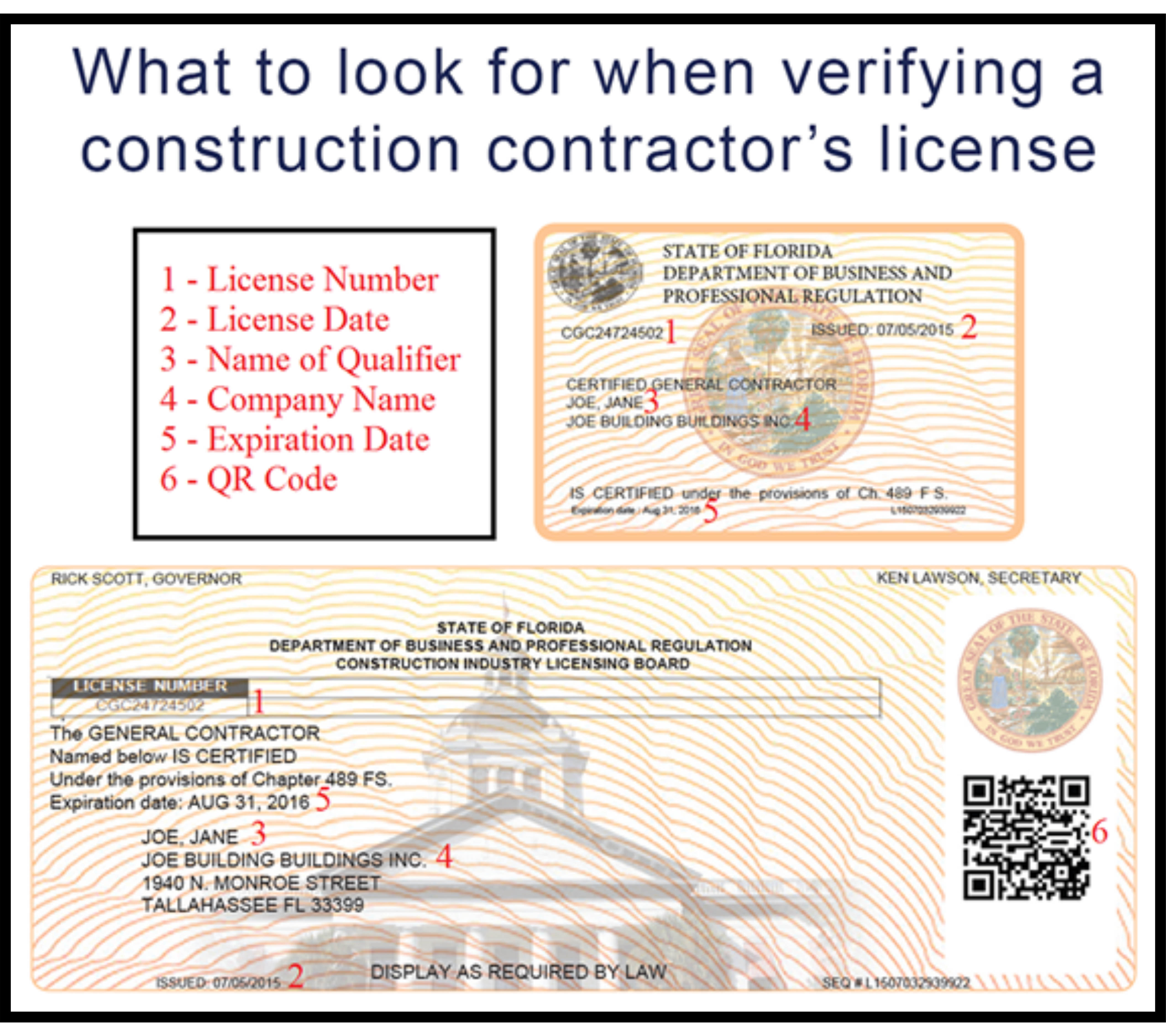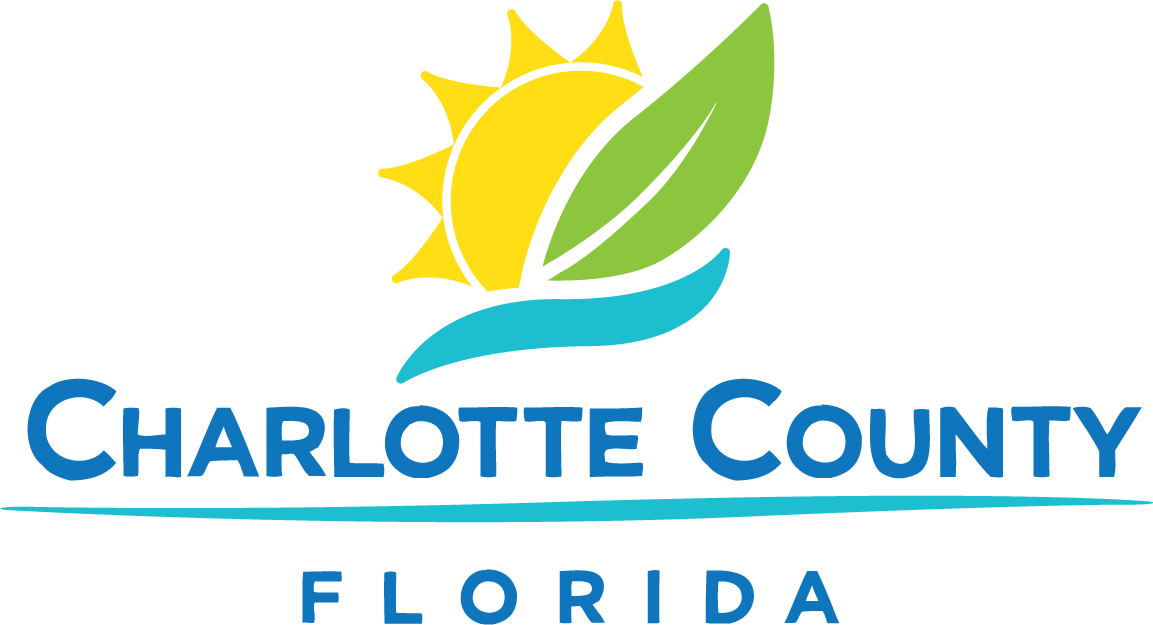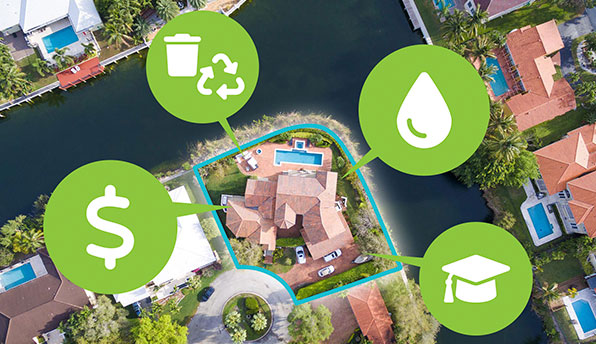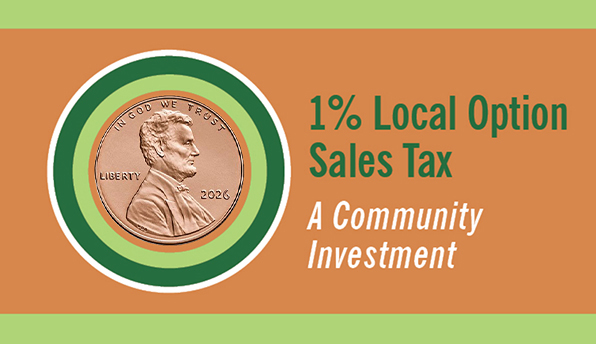Before a contractor can apply for a building permit or perform any work in Charlotte County, they must have a valid contractor’s license, as well as general liability and workers' compensation insurance. This requirement applies to all types of contractors. It is important to remember that just because someone advertises in the phone book, newspaper, or online does not mean they are licensed. Advertising platforms do not verify contractor credentials. Licensed contractors are required to obtain building permits for their work. This work must then be inspected by Charlotte County State Certified Building Inspectors, which helps ensure that the work complies with all local and state building codes and provides important protections for consumers.
Hiring the right contractor is one of the most important steps in any construction or renovation project. Taking the time to verify credentials, check references, and understand licensing requirements can help you avoid costly mistakes and protect your investment. Use the tips below to make an informed and confident decision.
- Verify the license: Always ask to see a state-issued contractor’s license before hiring.
- Check the license format: Make sure it looks like the official example provided below. Ask for multiple forms of identification to confirm the contractor's identity.
- Don’t be misled by an occupational license: An occupational license is only a tax receipt and does not authorize someone to perform contracting work.
- Corporate registration is not enough: Being registered as an INC or LLC with the Division of Corporations does not qualify an individual or business to act as a licensed contractor.
- Licensing matters: Contractors must be licensed by the Florida Department of Business and Professional Regulation (DBPR).
- Ask for references: A reputable contractor will gladly provide recent customer references with contact information.
- Get written estimates: Obtain detailed, written estimates from several licensed contractors. Estimates should include the scope of work, materials to be used, expected completion date, and total cost.
- Be cautious of “too good to be true”: Contractors who promise to be the fastest or the cheapest may cut corners, use substandard materials, or leave jobs incomplete.
- Check with your insurance company first: Before signing a contract, confirm that the repairs are covered by your insurance. Know your claim process. You are not required to share your insurance settlement amount with the contractor. If you choose to, request the contractor’s estimate first.
- Understand licensing requirements for specific work: A DBPR license is required for roofing, structural additions, air conditioning, plumbing, electrical work, and alarm systems. These services often require permits. Contact your local building department to verify permit requirements.
- Know which trades are not licensed by DBPR: DBPR does not license concrete contractors, painters, drywallers, cabinetmakers, tile installers, or those doing minor repairs. Licensing for these trades may still be required locally, so always check with our department or ask for references.

Hiring the wrong contractor can cost you time, money, and peace of mind. Unlicensed or uninsured individuals often cut corners, avoid inspections, and disappear if problems arise. Protect yourself by knowing the warning signs. If you notice any of the following red flags, it’s best to keep looking.
- No license number in advertisements: Florida law requires contractors to include their license number in all ads. If you don’t see a verifiable license, consider it a major red flag.
- Only a name and cell phone number are listed: Be cautious of ads or online posts that offer no business name, address, or license number. Avoid inviting someone into your home based solely on a classified ad or anonymous internet listing.
- They claim to be “licensed and insured” but can only show an occupational license or business registration: An occupational license is just a local business tax receipt. It does not authorize someone to perform contracting work. Likewise, being registered as an LLC or corporation does not mean they are professionally licensed. A properly licensed contractor will gladly show you their Florida Department of Business and Professional Regulation (DBPR) license and proof of insurance. Always verify both.
- They ask for most or all of the payment up front or insist on cash: Legitimate contractors typically request partial payment after work has begun. Cash-only demands are risky and often untraceable. Avoid them.
- They ask you to make payments to an individual or to “cash”: Checks should be made payable to a licensed business. Paying individuals directly can complicate any future disputes or claims.
- They show up in unmarked vehicles, often with out-of-state tags: This is a common tactic among unlicensed workers, sometimes called “trunk slammers.” They take your money and vanish.
- They refuse to put anything in writing: A licensed contractor will provide a written agreement that includes the scope of work, project timeline, total cost, and payment terms. If they avoid documentation, do not proceed.
- They say a permit is not necessary or ask you to pull it yourself: Most home improvement work requires a permit. A licensed contractor will obtain the permit and welcome the inspection process. If you're unsure whether your project requires a permit, contact us at 941.743.1201 to confirm.
- They discourage license verification: If someone resists or avoids having you check their license, take that as a serious warning. You can verify licenses anytime at www.myfloridalicense.com or call our department at 941.743.1201.
A clear, written contract is one of your best protections when hiring a contractor. It outlines expectations, timelines, payment terms, and your rights as a consumer. Never begin work without a signed agreement that covers all critical details. Use the checklist below to make sure your contract is complete and protects your interests.
-
The contractor’s full name, business address, phone number, and valid state license number
- A detailed description of the work to be completed, including a timeline (also known as a draw schedule) and a list of materials
- A clear completion date, including any final cleanup after the job is done
- Any warranty information, including coverage terms, length of the warranty, and what recourse you have if problems arise
- A notice of your rights under the Florida Homeowners' Construction Recovery Fund, which applies to contracts with licensed general, residential, and building contractors
- Read the contract carefully and fill in any blank spaces yourself.
- Consider having an attorney review the contract. If you don’t have one, the Florida Bar offers a lawyer referral service.
- Review the contract thoroughly before signing.
- Contact your insurance company to confirm that the work will be covered under your policy.
- Avoid paying in cash.
- Do not pay the full amount up front. Arrange for payment after the work is completed or in scheduled installments.
- Never sign off that the work is complete until all contracted work is finished, all permits have been closed, and final inspections have been approved by our department.
- If your contract exceeds $2,500, take time to understand your rights and responsibilities under the Florida Construction Lien Law.
- Most projects require permits. Always check with us at 941.743.1201 to confirm which permits are needed.
Additional Resources
Contractor Licensing Guide Florida Department of Business & Professional Regulation Charlotte Desoto Building Industry Assocation
If you need additional assistance or have questions, please contact our Contractor Licensing Division at 941.743.1201 (option 5) or ContractorLicensing@CharlotteCountyFL.gov.






